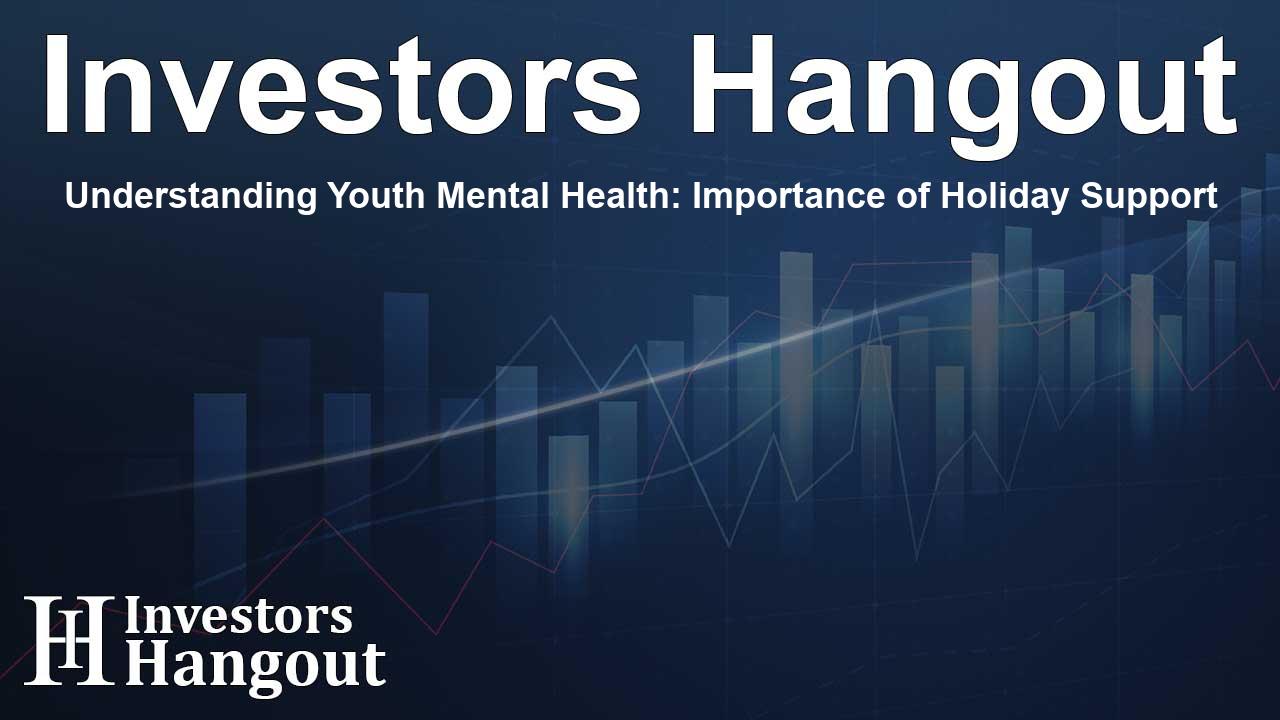Understanding Youth Mental Health: Importance of Holiday Support

Understanding Teen Mental Health During the Holidays
As the festive season approaches, it's crucial for parents to pay attention to recent findings regarding youth mental health. Experts from the University of North Carolina-Chapel Hill's School of Social Work emphasize the importance of being informed about mental health trends affecting children and teens. One notable study released highlights significant mental health challenges faced by teens today.
Insights from Recent Studies
The data suggests that while there has been a slight improvement in some areas since 2021, concerning numbers remain. A significant percentage of high school students expressed feelings of sadness or hopelessness, which can be intensified during the holidays.
It's not uncommon for both adults and children to experience heightened emotions such as sadness, disappointment, and loneliness during this time of year. Experts have noted that while feelings of stress may be shared across all ages, teenagers often confide their struggles primarily to peers. Therefore, it’s vital for parents to foster open communication.
Importance of Communication
As Amaris Sampson, the School-Based Mental Health First Aid Program Coordinator, points out, holidays are often perceived as joyful times. However, for some adolescents, it might disrupt their routines and lead to feelings of grief and isolation from their friends. It’s essential for families to reconnect during this time and have meaningful discussions about mental health, self-care, and the necessary support for their children.
Supporting Teen Mental Health Education
To further equip teens to recognize signs and symptoms of mental health challenges, experts advocate for the implementation of programs like Teen Mental Health First Aid (tMHFA) within schools. This evidence-based curriculum provides valuable tools for both teens and adults to identify mental health issues and act as a reliable source of support.
Parents are encouraged to discuss any observable changes in their teen's behavior, especially signs of sadness or hopelessness that may arise during the holidays. Engaging with local schools about the availability of programs such as tMHFA can also empower parents to advocate for better mental health resources.
Taking Action Together
Encouraging parents to play an active role in their child’s mental health journey is crucial. By creating a safe space for dialogue, parents can help their teens navigate their feelings and experiences, especially amid the seasonal festivities. This proactive approach can mitigate feelings of despair and isolation that too many young people encounter.
Next Steps for Parents
By fostering conversations at home about mental health, parents can equip their teens with coping strategies and a better understanding of their emotions. If parents suspect that their child is experiencing significant distress, reaching out for professional support can be a valuable step in the right direction.
About Behavioral Health Springboard
Behavioral Health Springboard (BHS) operates as a department within the UNC-Chapel Hill School of Social Work. They strive to bridge the gap between current research and training programs designed to enhance the mental well-being of youth across the state.
Frequently Asked Questions
Why is holiday mental health awareness so important?
The holiday season can exacerbate feelings of sadness and isolation, making it crucial for families to remain attentive to their children's emotional needs.
How can parents support their teenager's mental health?
Open communication, discussing feelings openly, and exploring available mental health resources like tMHFA can significantly support teens during the holidays.
What are the symptoms of depression in teens?
Common symptoms include persistent sadness, hopelessness, withdrawal from social activities, and changes in sleeping or eating patterns.
What programs are suggested for schools to help with mental health?
Teen Mental Health First Aid (tMHFA) is an effective program that teaches both teens and adults how to recognize and respond to mental health challenges.
What should a parent do if their child shows signs of distress?
Parents should engage in meaningful conversations with their teens and seek guidance from mental health professionals if necessary.
About Investors Hangout
Investors Hangout is a leading online stock forum for financial discussion and learning, offering a wide range of free tools and resources. It draws in traders of all levels, who exchange market knowledge, investigate trading tactics, and keep an eye on industry developments in real time. Featuring financial articles, stock message boards, quotes, charts, company profiles, and live news updates. Through cooperative learning and a wealth of informational resources, it helps users from novices creating their first portfolios to experts honing their techniques. Join Investors Hangout today: https://investorshangout.com/
Disclaimer: The content of this article is solely for general informational purposes only; it does not represent legal, financial, or investment advice. Investors Hangout does not offer financial advice; the author is not a licensed financial advisor. Consult a qualified advisor before making any financial or investment decisions based on this article. The author's interpretation of publicly available data shapes the opinions presented here; as a result, they should not be taken as advice to purchase, sell, or hold any securities mentioned or any other investments. The author does not guarantee the accuracy, completeness, or timeliness of any material, providing it "as is." Information and market conditions may change; past performance is not indicative of future outcomes. If any of the material offered here is inaccurate, please contact us for corrections.